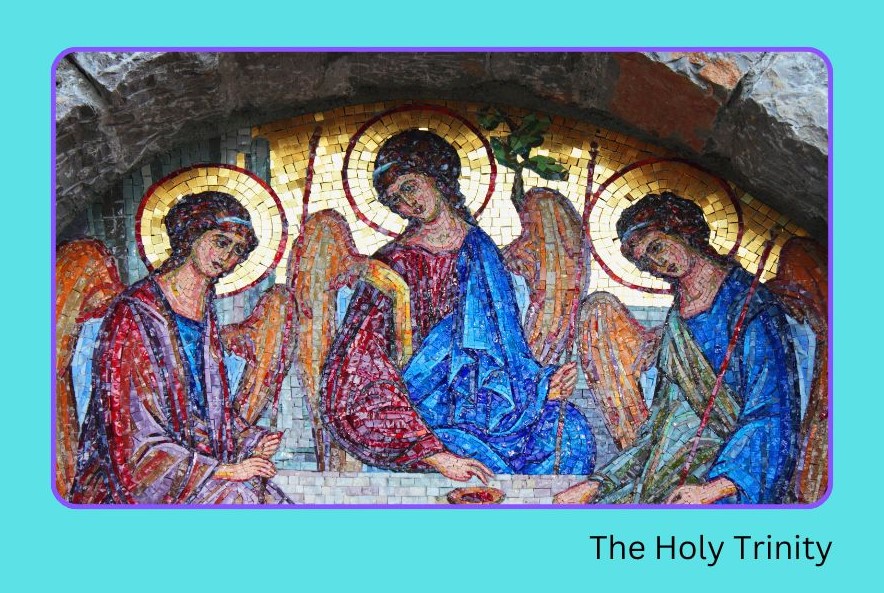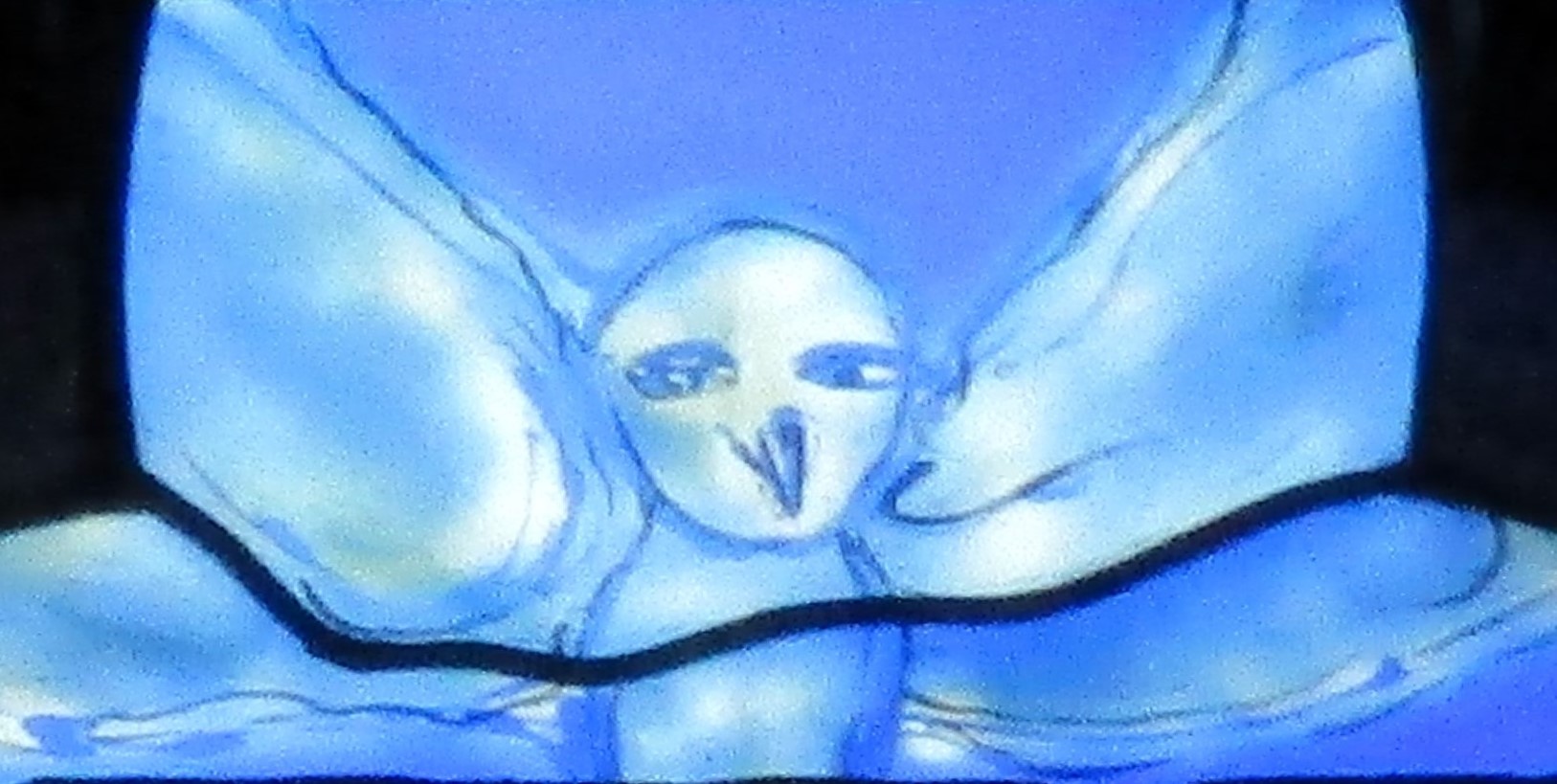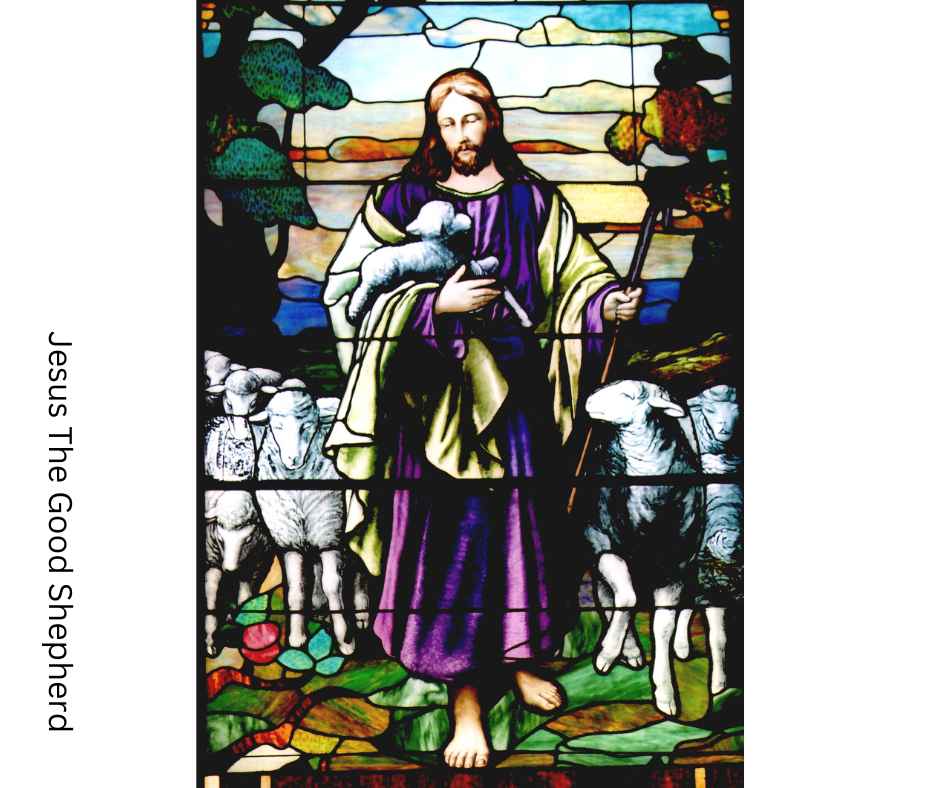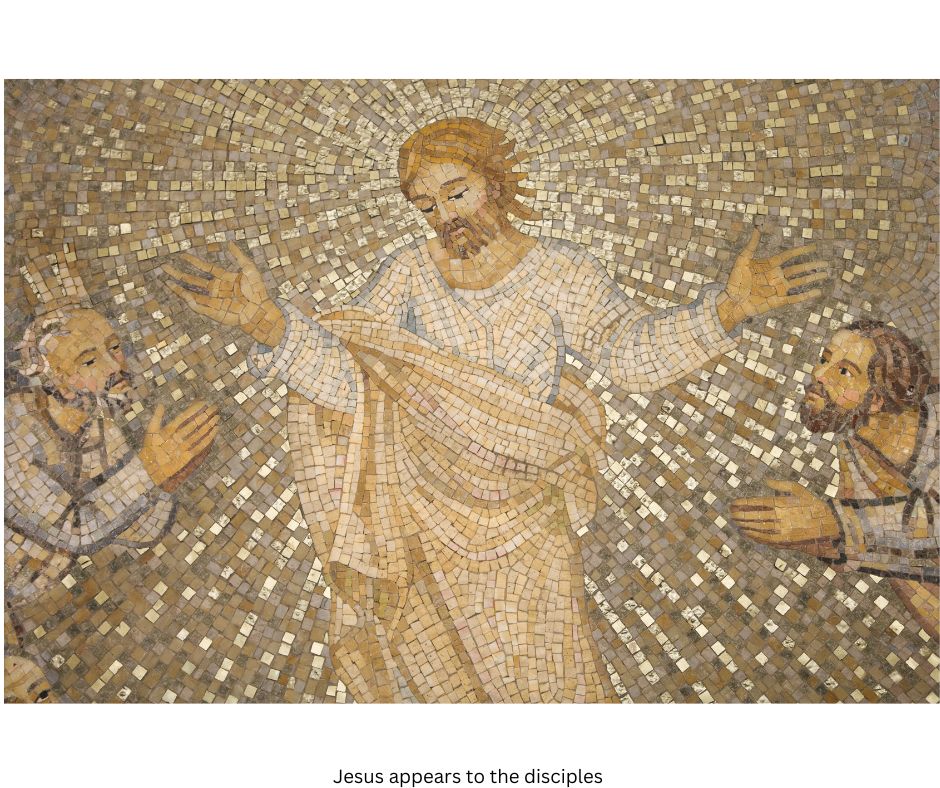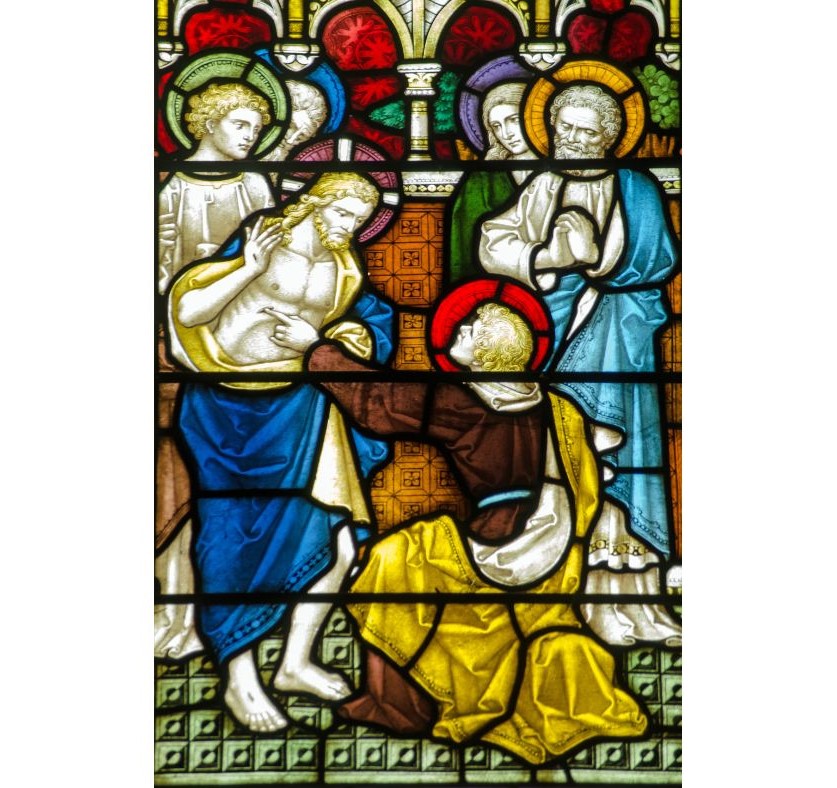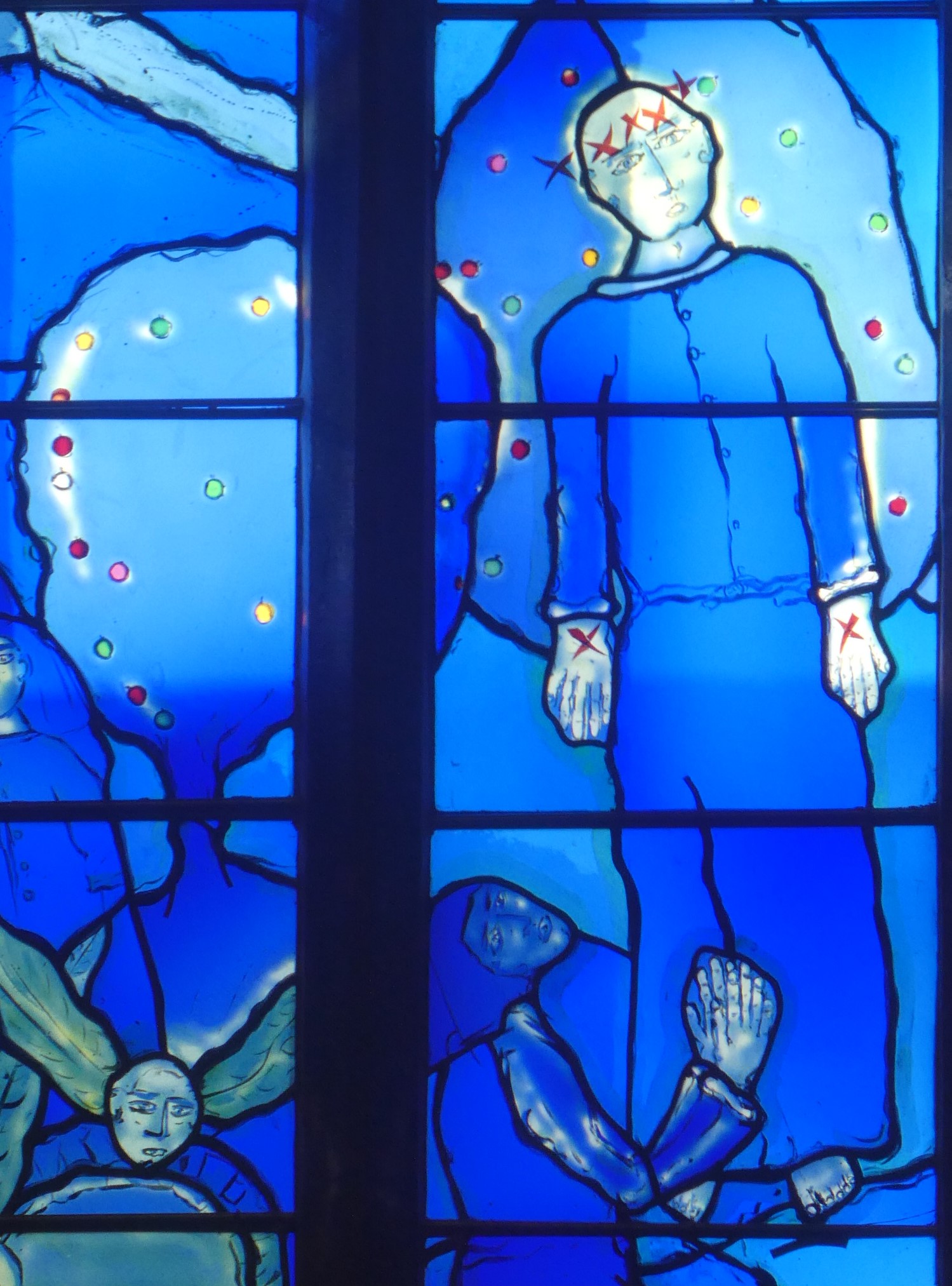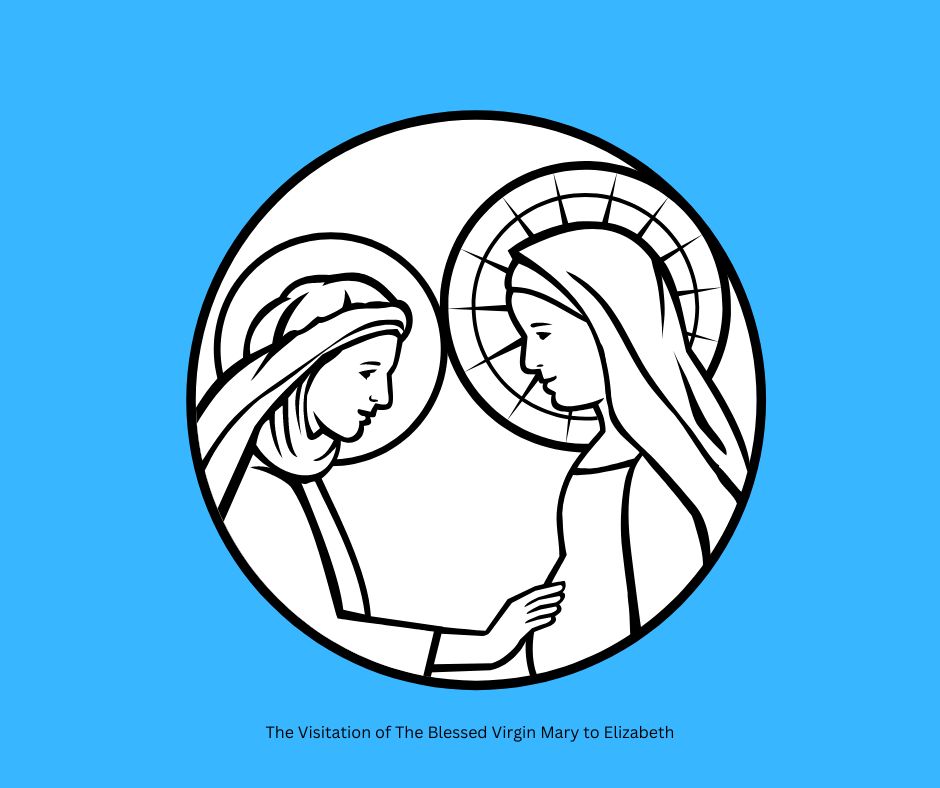
Watch this week's service on YouTube
Download the order of service here: 24 06 02 Visitation of The Blessed Virgin Mary to Elizabeth Sunday Eucharist
Read this week's Church News
The Readings
Romans 12.9-16
Let love be genuine; hate what is evil, hold fast to what is good; love one another with mutual affection; outdo one another in showing honour. Do not lag in zeal, be ardent in spirit, serve the Lord. Rejoice in hope, be patient in suffering, persevere in prayer. Contribute to the needs of the saints; extend hospitality to strangers.
Bless those who persecute you; bless and do not curse them. Rejoice with those who rejoice, weep with those who weep. Live in harmony with one another; do not be haughty, but associate with the lowly; do not claim to be wiser than you are.
Luke 1.39-56
In those days Mary set out and went with haste to a Judean town in the hill country, where she entered the house of Zechariah and greeted Elizabeth. When Elizabeth heard Mary’s greeting, the child leapt in her womb. And Elizabeth was filled with the Holy Spirit and exclaimed with a loud cry, ‘Blessed are you among women, and blessed is the fruit of your womb. And why has this happened to me, that the mother of my Lord comes to me? For as soon as I heard the sound of your greeting, the child in my womb leapt for joy. And blessed is she who believed that there would be a fulfilment of what was spoken to her by the Lord.’
And Mary said,
‘My soul magnifies the Lord,
and my spirit rejoices in God my Saviour,
for he has looked with favour on the lowliness of his servant.
Surely, from now on all generations will call me blessed;
for the Mighty One has done great things for me,
and holy is his name.
His mercy is for those who fear him
from generation to generation.
He has shown strength with his arm;
he has scattered the proud in the thoughts of their hearts.
He has brought down the powerful from their thrones,
and lifted up the lowly;
he has filled the hungry with good things,
and sent the rich away empty.
He has helped his servant Israel,
in remembrance of his mercy,
according to the promise he made to our ancestors,
to Abraham and to his descendants for ever.’
And Mary remained with her for about three months and then returned to her home.
Scripture Quotations are from: New Revised Standard Version Bible: Anglicized Edition, copyright © 1989, 1995 National Council of the Churches of Christ in the United States of America. Used by permission. All rights reserved worldwide. http://nrsvbibles.org
The Sermon
By The Revd Shan Rush.
Today, we recall the visit of the Blessed Virgin Mary to Elizabeth as recorded in Luke’s Gospel. It’s
one of those rarer occasions when we are made more aware of the role of women in the story of
our faith. Mary is honoured as the mother of Jesus but Elizabeth gets little mention although we
know John’s birth was equally miraculous. These are important women, who, albeit briefly, stand
centre stage in this important Christian story. These two women enable life, making possible the
gift of God’s life in all its fullness, as John’s gospel would say.
Zachariah was a priest and along with his wife they were faithful to the Jewish traditions.
Zechariah and Elizabeth were both elderly and this couple’s sadness was that they were childless.
They lived in hope that one day, the long awaited ruler of Israel that the prophet Micah had
prophesied long before their lives began would be born in Bethlehem. Zechariah doubted God’s
message that he would father John the Baptist, but God fulfils the promise he has made and
Elizabeth conceives.
The news of Elizabeth’s pregnancy was shared with Mary by the angel Gabriel who greeted Mary
as someone specifically favoured by God and announced to her she would bear a Son who would
be the fulfilment of the promises made to their ancestors. Mary questions this news, afraid of
what God is asking of her, a young, unmarried woman who could be ostracised by her community
for being pregnant. The Angel reassures her by saying your “relative Elizabeth in her old age has
also conceived a son; and this is the sixth month for her who was said to be barren. For nothing
will be impossible with God.” Hearing this, Mary agrees to God’s proposal saying, ‘Here am I, the
servant of the Lord; let it be with me according to your word.’ Unlike Zechariah, Mary responded
to Gods call with grace and humility, not only out of obedience, but with a willing heart. She hears
God’s word and accepts it, letting the word become flesh in our midst, and in doing so aligning
God’s choice with her own choice. From my own experience I imagine her decision brought her a
sense of peace. The closest I can get to understanding how this felt was when I stopped putting
obstacles in the way of accepting I was was being invited to be ordained. When I finally said Yes to
the invitation to explore this vocation, it felt as though God’s choice and my own to continue the
journey met, and instead of walking separate paths, God and I were on the same path and each of
our choices were complimentary. Suddenly I was ready to share my news with others.
Returning to our story, who better for Mary to share her surprising and amazing news with than
someone in a similar situation, so Mary set out to visit Elizabeth, her cousin. There’s a beautiful
painting depicting the moment they met in which you can sense the joy and love between these
two women.
Elizabeth knew instantly that Mary’s child would be the long awaited Messiah. Elizabeth is able to
read the signs with the mind of prophesy, the gift of God’s Spirit. She also acts as a kind of
midwife, not in the literal sense, since she is not named in the nativity narratives of the Gospels,
but as one who helps bring to birth. It’s John, still in the womb who gets the credit from Luke as
he uses John the Baptists leaping in Elizabeth’s womb as the first time he bears witness to Christ as
that promised Messiah.
Many mum’s are encouraging and supportive of their children and Mary was no different, not solely
as his mother whilst he was at home , but also by becoming one of his followers as his ministry
extended beyond his home town. In many ways this is not surprising as we know she was called to
be a servant of the Lord by God, and that calling is not usually only for one specific purpose. In
todays Gospel, not only did we have it affirmed that, although it may take a long time, God keeps
promises, we also see in Mary, someone whose life is shaped by her commitment to honouring the
calling she has been given. Mary puts God and subsequently Jesus at the centre of her life. She
does not do this passively, but through sharing what is happening in her everyday life.
In her wonder at having been chosen to be the bearer of God, the mother of the Messiah, Mary
praises God. This song or prayer of praise is what we know today as The Magnificat.
In it, she praises the God of surprises who turns the world upside down and transforms lives. She
expresses delight that God has chosen her, but goes on to voice the subversive view that
“He has shown strength with his arm;
he has scattered the proud in the thoughts of their hearts.
He has brought down the powerful from their thrones,
and lifted up the lowly;
he has filled the hungry with good things,
and sent the rich away empty.”
In Mary’s Song there is a reversal. The reign of God, she asserts, turns upside down the values of
the world. Under God’s reign the poor are to be lifted up, regarded as of highest value. The rich
will be sent away, as of no account.
This is echoed in the Good News of Jesus Christ so whether or not you have a devotion to Mary
as you seek to follow as a disciple of Jesus, her influence is embedded in our faith journey. It was a
theme picked up by Oscar Romero in answer to the question, ‘What must the rich do to be
saved?’ He replied, ‘they must be converted to the poor,’ because it is with the poor, the
marginalised, the rejected, that we will find God, and our lives will be transformed.
Jen Norton is an artist and author who creates colourful and prayerful artwork that celebrates the
traditions of the Catholic faith. She writes;
“A good starting point for a deeper appreciation of the Song of Mary is simply recognising that it
could be our song, too. If the Magnficat is the prayer of the Church, then it is our prayer; and if it
is our prayer, then Mary’s words become our words, and praying those words helps us to respond
to God as she did.”
At Common Worship Evening Prayer, The Magnificat is said daily, revealing the God of justice who
acts on behalf of those who are marginalised.
As we pray the Magnificat, we are not just praising God for what he has accomplished in the past,
but for all the ways in which he acts in our lives today. The Magnificat prompts us to ask: How is
God showing his strength in my life today? How is he scattering the proud? How is he casting
down the mighty from their thrones? How is he exalting the lowly, filling the hungry with good
things, and sending the rich away empty? How is he helping his people? How is he helping me?
These questions through our prayers don’t always come with immediate answers, but when the
time is right, the way forward will become clear and God’s love for humanity will be revealed.
Amen.
The Prayers
Let us proclaim the greatness of the Lord
and rejoice together in the God who saves us.
Lord, in your mercy:
hear our prayer.
You have mercy on those who fear you in every generation.
We pray for your Church for our Bishops Pete and Sophie and all who minister
Lord, in your mercy:
hear our prayer.
You show the strength of your arm
and cast down the mighty from their thrones.
We pray for the nations of the world and their leaders.
Lord, in your mercy:
hear our prayer.
You lift up the lowly and fill the hungry with good things.
We pray for all those in any kind of need.
Lord, in your mercy:
hear our prayer.
You come to the aid of your servants
and remember your promises with mercy.
We remember all who have died in the faith of Christ.
Bring us with them to share the joy of heaven
with Mary and all the saints.
Lord, in your mercy:
hear our prayer.
Father most holy,
so guide us in the way of humility and obedience like Mary,
that our lives may be a constant hymn of praise
to you from whom all good things come.
We ask this through Jesus Christ our Lord.
Merciful Father,
accept these prayers
for the sake of your Son,
our Saviour Jesus Christ.
Amen.
Common Worship: Times and Seasons, material from which is used here is copyright (c) 2010 The Archbishops' Council


